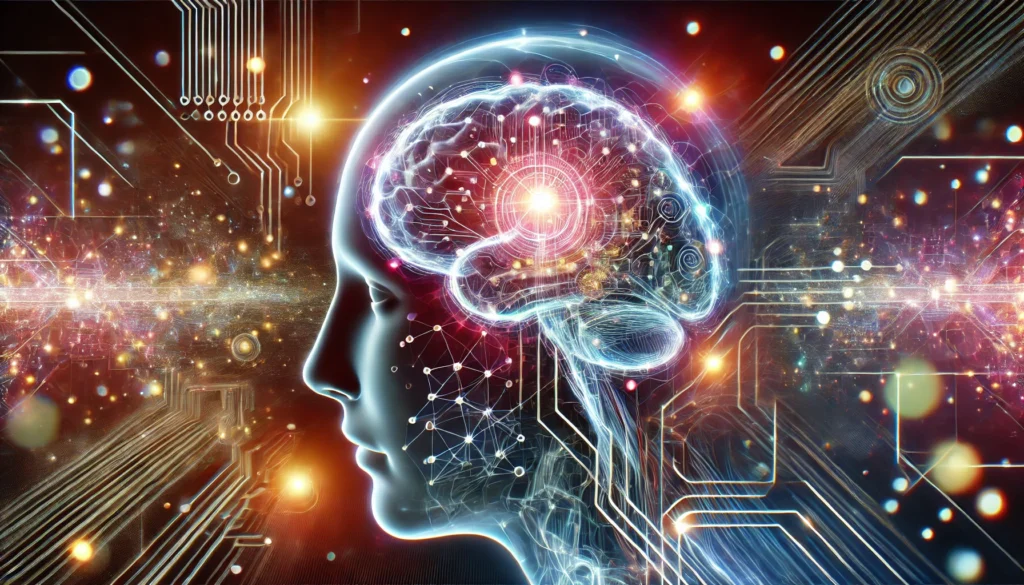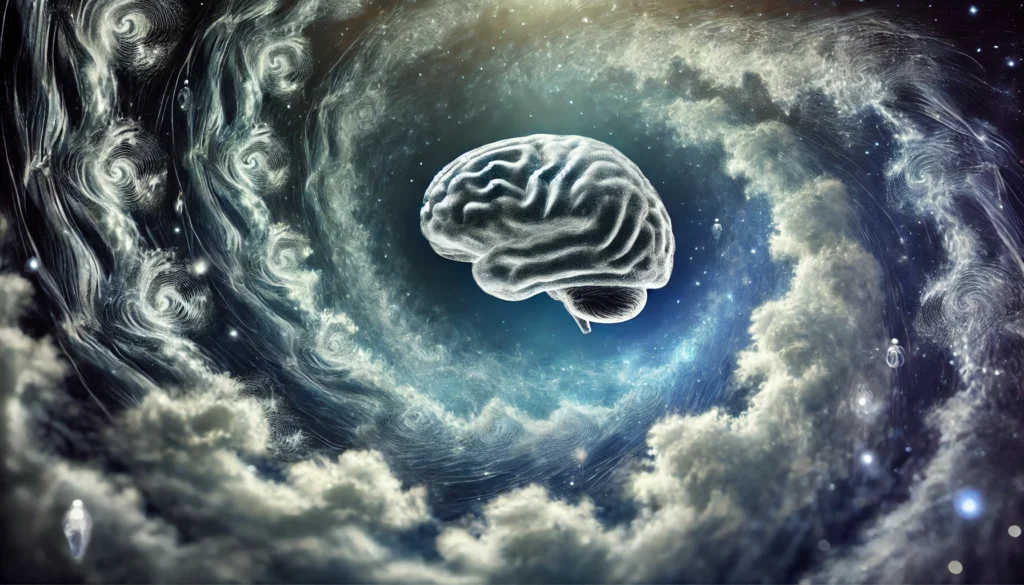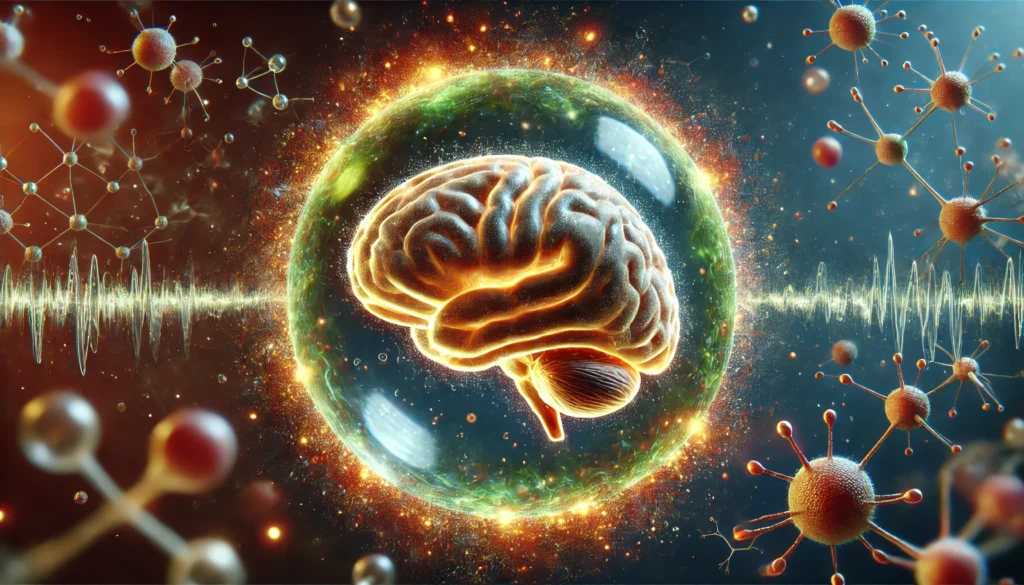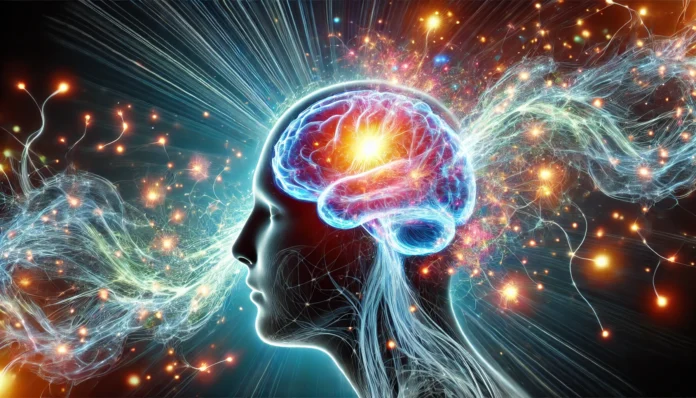Introduction: Exploring the Human Brain
The human brain is a complex organ, still shrouded in mystery despite centuries of study. It controls every aspect of our lives, from basic motor functions to the most intricate thought processes. The brain is not just an organ; it is the epicenter of our consciousness and behavior. Understanding the brain is crucial for anyone interested in brain health and cognitive enhancement, as well as anti-aging and longevity.
You may also like : Best Things for Brain Health: Expert-Backed Strategies to Keep Your Mind Sharp
In this article, we’ll dive into 10 fascinating facts about the human brain that will make you rethink everything you thought you knew. From its power to its mysterious intricacies, these brain facts will not only surprise you but also highlight the importance of maintaining brain health for long-term wellness.
The Brain Can Generate More Electrical Impulses Than a Supercomputer
The brain is capable of producing over 100,000 electrical impulses every second. These electrical signals are how neurons communicate with one another, forming the basis for every action, thought, and memory. In comparison, even the most powerful supercomputers struggle to match this level of efficiency and processing capacity.
Our brain’s ability to perform complex tasks with such a low energy cost is a remarkable example of biological ingenuity. This explains why, despite being smaller in size compared to a supercomputer, the brain is far superior in terms of efficiency. The incredible speed of these electrical impulses enables the brain to respond to stimuli in fractions of a second.
In terms of brain health, this electrical activity underscores the importance of protecting our brain’s ability to function. Regular mental exercises, along with a proper diet, can help sustain healthy brain function well into old age.
Your Brain Uses Approximately 20% of Your Body’s Energy
Despite only weighing about 2% of the total body mass, the brain consumes about 20% of the body’s total energy. This energy is primarily used to support neural activity and maintain cognitive functions. It’s fascinating to think that such a small organ has such a large impact on our overall energy expenditure.
Maintaining optimal brain health is not just about keeping the brain active but also ensuring it has the necessary nutrients to function. Foods rich in omega-3 fatty acids, antioxidants, and vitamins are crucial for brain energy and longevity. A balanced diet that supports both cognitive performance and energy levels is key to a long, healthy life.
The Brain Can Continue to Form New Neurons in Adulthood
For many years, it was believed that the adult brain could not grow new neurons. However, recent research has revealed that neurogenesis—the process of forming new neurons—can occur throughout adulthood, particularly in areas related to memory and learning, such as the hippocampus.
This discovery has profound implications for understanding brain aging and cognitive decline. It suggests that, with the right lifestyle choices, we can continue to promote brain plasticity even as we age. Regular exercise, mental challenges, and social interaction have all been shown to promote neurogenesis and can help stave off the effects of aging on the brain.

Your Brain Is More Active When You Are Asleep Than When You Are Awake
It may seem counterintuitive, but the brain is more active during sleep than while you’re awake. During sleep, the brain is involved in crucial processes like memory consolidation, emotional regulation, and detoxification. Certain areas of the brain, especially the ones involved in long-term memory and problem-solving, become especially active while we sleep.
Understanding this fact emphasizes the importance of a good night’s sleep for cognitive health. Sleep is not just a period of rest for the body; it’s a time when the brain rejuvenates itself. Consistent, high-quality sleep is essential for maintaining brain function, particularly in the realms of learning, emotional balance, and memory retention.
The Human Brain Can Store an Enormous Amount of Information
The brain’s capacity for storing information is truly staggering. It is estimated that the human brain can store around 2.5 petabytes of information, which is roughly equivalent to 3 million hours of television. To put this in perspective, if you were to watch all the content your brain could theoretically hold, it would take you over 300 years.
This immense storage capability is why the brain is often likened to a supercomputer. It has an uncanny ability to absorb and organize vast amounts of data from every experience and sensory input. One of the key factors contributing to this ability is the way the brain strengthens neural connections through repetition and practice.
The Brain Is Highly Adaptable: Neuroplasticity
Neuroplasticity is the brain’s remarkable ability to reorganize itself by forming new neural connections. This process allows the brain to compensate for injury or changes in the environment. For instance, when one part of the brain is damaged, such as after a stroke, other parts of the brain can take over the lost functions.
This adaptability is vital not only for recovery from brain injuries but also for learning new skills. Whether you’re learning a new language or acquiring new motor skills, neuroplasticity allows the brain to form new pathways and connections. This insight into how adaptable the human brain is highlights the importance of lifelong learning and mental stimulation.
The Brain Can Process Information as Fast as 120 Meters per Second
Information processing in the brain occurs at incredible speeds. Neurons transmit electrical signals across synapses at a rate of up to 120 meters per second. This is significantly faster than the blink of an eye, which takes about 300 milliseconds to complete. The rapid processing of information enables humans to react quickly to stimuli and make decisions almost instantaneously.
Understanding the speed at which the brain processes information underscores the importance of cognitive fitness. Mental exercises and activities that keep the brain sharp can help maintain its fast processing abilities, which are essential for both day-to-day functioning and complex problem-solving.

Your Brain Shrinks with Age—But You Can Slow It Down
It’s natural for the brain to shrink with age, a process known as brain atrophy. However, research shows that this process can be slowed down significantly through lifestyle interventions. Regular physical activity, mental challenges, and a nutrient-rich diet can all help protect the brain from age-related shrinkage and cognitive decline.
Maintaining brain health throughout your life is critical for ensuring that the brain retains its full capabilities as you grow older. By incorporating habits like exercise and cognitive stimulation, you can slow down the aging process and improve the longevity of your brain’s function.
The Brain’s Left and Right Hemispheres Specialize in Different Functions
The brain is divided into two hemispheres, each specializing in different functions. The left hemisphere is typically associated with logical thinking, language processing, and analytical tasks. In contrast, the right hemisphere is linked to creativity, intuition, and spatial awareness.
This division of labor is why certain activities require the activation of both hemispheres. For example, problem-solving tasks might engage the logical left hemisphere, while creative pursuits such as art or music might involve the right hemisphere. The idea of left-brain and right-brain dominance has long fascinated researchers, emphasizing the brain’s versatility.
The Brain’s Complexities Extend to Its Blood Supply: The Blood-Brain Barrier
The brain’s blood supply is unique in that it is protected by what is known as the blood-brain barrier. This protective mechanism ensures that harmful substances, such as toxins and pathogens, cannot easily pass from the bloodstream into the brain. However, it also makes it challenging to deliver drugs or treatments to the brain effectively.
Understanding the blood-brain barrier’s role in brain health is crucial for developing new therapies for neurological conditions. Researchers are constantly exploring ways to bypass this barrier to treat conditions like Alzheimer’s disease, Parkinson’s disease, and various forms of brain injury.
Frequently Asked Questions (FAQ) About the Human Brain
1. How complex is the human brain compared to other organs?
The human brain is the most complex organ in the body, housing approximately 86 billion neurons, each forming thousands of connections with other neurons. This vast network facilitates everything from basic motor functions to abstract reasoning and emotional processing. Unlike the heart, which primarily functions as a pump, or the liver, which processes toxins, the brain is responsible for interpreting sensory information, generating thoughts, and coordinating actions. The brain’s complexity is further highlighted by its ability to rewire itself through neuroplasticity, allowing individuals to recover from injuries or adapt to new learning experiences. This level of intricacy makes the human brain one of the most studied yet still enigmatic organs in neuroscience.
2. What does a human brain look like up close?
When observed up close, the human brain appears as a convoluted mass of soft, pinkish-gray tissue covered in intricate folds known as gyri and sulci. These folds significantly increase the brain’s surface area, allowing for a greater number of neurons and enhancing cognitive function. The brain is divided into two hemispheres, each responsible for distinct types of processing, and contains structures like the cerebrum, cerebellum, and brainstem. It is encased within the skull and protected by cerebrospinal fluid, which cushions it from impacts. While it may not look particularly impressive at first glance, its capabilities are unmatched, making it one of the most remarkable structures in the animal kingdom.
3. What does a brain feel like in texture and density?
The human brain has a gelatinous consistency, similar to that of soft tofu or a dense jelly, which allows it to remain cushioned within the skull. Unlike muscles or bones, which are firm and rigid, the brain’s softness is due to its high water and fat content. It is encased in a network of meninges and cerebrospinal fluid, which help maintain its shape and protect it from shocks. Despite its delicate texture, the brain is an incredibly resilient organ, capable of recovering from injuries through neuroplasticity. This unique combination of softness and strength allows it to perform its complex functions while being safeguarded within the cranial cavity.
4. Why do humans have a larger brain compared to body size?
One of the most interesting facts about the human brain is its disproportionately large size compared to the body. Unlike other mammals, humans have a significantly higher encephalization quotient, meaning our brains are larger relative to our body mass. This increased brain size is associated with advanced cognitive abilities such as problem-solving, language, and abstract thinking. The expansion of the prefrontal cortex, in particular, plays a critical role in decision-making and social interactions. Evolutionarily, this growth has provided humans with a competitive advantage, allowing us to develop complex societies, cultures, and technologies.
5. How does the brain store and recall memories?
Memory storage and recall are among the most fascinating processes governed by the human brain. Unlike a computer that stores data in fixed locations, the brain distributes memories across different regions, including the hippocampus, amygdala, and cortex. Short-term memories are processed in the prefrontal cortex before being consolidated into long-term storage within the hippocampus. Emotional significance plays a crucial role in memory retention, as experiences associated with strong emotions tend to be remembered more vividly. Scientists believe that sleep is essential for memory consolidation, highlighting the importance of rest in retaining information and cognitive function.
6. Can the human brain create new neurons throughout life?
Yes, one of the most surprising neuroscience facts is that the human brain can generate new neurons even in adulthood, a process known as neurogenesis. While it was once believed that humans were born with a finite number of neurons, research has shown that areas like the hippocampus can produce new neurons throughout life. Factors such as physical exercise, learning new skills, and social interactions can enhance neurogenesis, promoting brain health and cognitive longevity. Conversely, chronic stress and poor lifestyle choices can inhibit this process, emphasizing the importance of mental and physical well-being. This discovery has reshaped our understanding of aging and brain plasticity, offering hope for neurodegenerative disease treatments.
7. Why does the human brain consume so much energy?
Despite comprising only about 2% of body weight, the human brain consumes approximately 20% of the body’s total energy. This high energy demand is due to the constant activity required for maintaining neuronal communication, processing sensory input, and executing voluntary and involuntary functions. Glucose and oxygen are the brain’s primary energy sources, and a steady supply of both is crucial for optimal performance. When the brain lacks sufficient nutrients, cognitive functions such as memory, concentration, and decision-making can decline. This metabolic intensity underscores why a balanced diet rich in brain-boosting nutrients like omega-3 fatty acids and antioxidants is essential for maintaining peak cognitive function.
8. What are some fun facts about the human brain that kids might enjoy?
For children, learning about the brain can be both exciting and educational. One of the most fun facts about the human brain is that it generates enough electricity to power a small lightbulb. Another fascinating fact is that the brain does not have pain receptors, meaning it cannot feel pain despite controlling the body’s sensations. Additionally, the human brain processes information at incredible speeds—faster than the fastest supercomputers. The brain is also 75% water, highlighting the importance of hydration for cognitive performance. Teaching kids these brain trivia facts can spark their curiosity and encourage them to explore the wonders of neuroscience.
9. How does the human brain compare to artificial intelligence?
While artificial intelligence (AI) has made significant advancements, it still pales in comparison to the human brain in terms of adaptability, creativity, and emotional intelligence. AI systems can process vast amounts of data at high speeds, but they lack the ability to understand context, develop intuition, and experience emotions. The human brain, on the other hand, can learn from minimal information, apply past experiences to new situations, and exhibit problem-solving skills in ways that AI cannot yet replicate. Additionally, the brain’s efficiency in processing information using only 20 watts of power far exceeds that of even the most advanced supercomputers. This ongoing comparison between AI and human cognition continues to be a fascinating area of research.
10. What are some important facts about the human brain related to aging? As humans age, the brain undergoes several changes, including a gradual decline in volume and neural connectivity. While mild cognitive decline is a normal part of aging, adopting healthy lifestyle habits can slow this process. Regular physical activity, mental stimulation, and a nutrient-rich diet have been shown to preserve cognitive function and reduce the risk of neurodegenerative diseases like Alzheimer’s. Another important fact about the human brain is that social engagement plays a crucial role in maintaining mental sharpness; individuals who remain socially active tend to experience slower cognitive decline. Understanding these aging-related changes can help individuals take proactive steps to support long-term brain health and longevity.

Conclusion: Unlocking the Mysteries of the Brain
The human brain is one of the most intricate and powerful organs in the body. Its ability to process vast amounts of information, adapt to new challenges, and store memories is unparalleled. The facts presented in this article only begin to scratch the surface of what makes the brain such a fascinating and vital part of our existence.
By understanding the brain’s capabilities and the factors that influence its health, we can make more informed decisions about how to protect it and ensure its optimal functioning throughout life. From neuroplasticity to the brain’s immense energy requirements, the more we learn about this incredible organ, the better equipped we become to enhance our cognitive abilities and ensure our brains remain healthy as we age.
As we continue to explore the human brain, we must remember that maintaining brain health is a lifelong journey. Through continued research, healthy habits, and a commitment to cognitive fitness, we can unlock the full potential of this remarkable organ. Your brain is, after all, one of your most powerful assets—take care of it, and it will take care of you.
brain health optimization, cognitive function improvement, neurological research insights, memory enhancement techniques, brain aging prevention, neuroscience discoveries, brain plasticity studies, mental acuity strategies, intelligence and brainpower, human cognition exploration, psychological well-being and brain health, brain-based learning methods, neurogenesis stimulation, brain fuel nutrition, cognitive longevity practices, brainwave activity analysis, sleep and brain function, mental clarity boosters, neural network functioning, emotional intelligence and the brain
Further Reading:
10 Facts You Probably Didn’t Know That Could Save Your Life
Super Fascinating Facts About The Human Eye You Probably Don’t Know
50 Surprising Things About Your Brain We Bet You Didn’t Know
Disclaimer
The information contained in this article is provided for general informational purposes only and is not intended to serve as medical, legal, or professional advice. While Health11News strives to present accurate, up-to-date, and reliable content, no warranty or guarantee, expressed or implied, is made regarding the completeness, accuracy, or adequacy of the information provided. Readers are strongly advised to seek the guidance of a qualified healthcare provider or other relevant professionals before acting on any information contained in this article. Health11News, its authors, editors, and contributors expressly disclaim any liability for any damages, losses, or consequences arising directly or indirectly from the use, interpretation, or reliance on any information presented herein. The views and opinions expressed in this article are those of the author(s) and do not necessarily reflect the official policies or positions of Health11News


